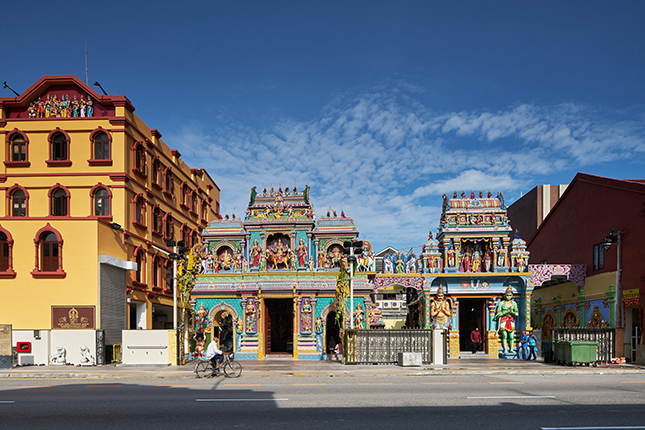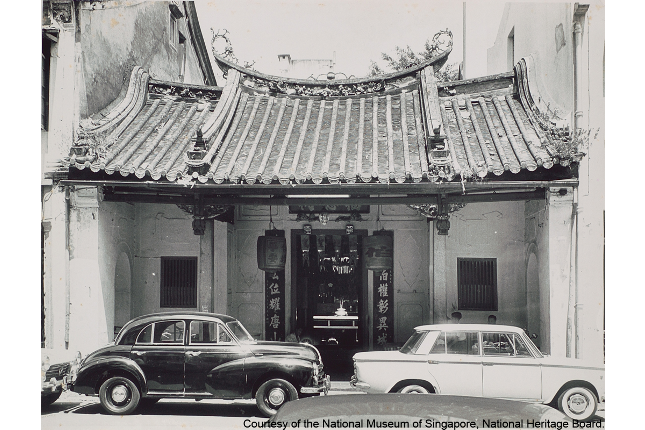Ayurveda
The practice of Ayurveda medicine, with its roots in ancient Sanskrit sources, is believed to have started in Singapore in the late 19th-20th century. Ayurveda is a celebrated form of Indian medicine based on applied philosophy of “metaphysical fitness”, which comprises of a holistic treatment aimed at restoring the natural balance of one’s body, mind and soul.
Ayurveda practitioners regard health to be the state of balance between mind, body and environment. Treatment and therapies are often focused on managing a person’s long-term ailments.
Ayurveda uses medical formulations of plant, animal and mineral origins, while oils are also used as massage treatment as part of Ayurvedic therapy.
Geographic Location
Ayurveda originated from India and is practised in countries with Indian diaspora, such as Singapore.
Communities Involved
Ayurveda is widely practised by the Indian community in Singapore, and there has been increased awareness of the practice beyond the community.
Its physician-practitioners are called vaidyas. There are associations such as the Ayurvedic Practitioners Association Singapore, which comprises a community of qualified practitioners, students, manufacturers and distributors, which regulate the practice of Ayurvedic healthcare in Singapore.
Associated Social and Cultural Practices
Ayurveda involves the belief that there are five core elements in the body – earth, water, fire, wind and space, which combine into three doshas (life forces or energies), governing the processes of well-being. Though some view that a balance in doshas in one’s body is crucial to health, there are also some who acknowledge that each person has characteristics and temperament which are inclined towards particular doshas. The three doshas are vata (space and air), pitta (fire and water) and kapha (water and earth).
There are also varying forms of Indian medical treatments, such as Tamil Siddha medicine or folk medicinal practices, which may be presented as Ayurveda. At times, this may mean that varieties of Indian traditional medicine may be operating within a single Ayurveda establishment.
Present Status
With its emphasis in a holistic approach in treating long-term ailments and achieving balance, Ayurveda has been gaining popularity in recent decades.
The first International Conference on Ayurveda in Singapore was held in 2016, providing a platform for discussion by various practitioners, addressing possibilities as well as challenges ahead for the practice of Ayurveda in Singapore. There is a healthy network of Ayurveda practitioners including students and academia, and Ayurveda continues to be practised and transmitted in Singapore.
References
Reference No.: ICH-038
Date of Inclusion: April 2018; Updated March 2019
References
Alter, J. S. “Heaps of health, metaphysical fitness: Ayurveda and the ontology of good health in medical anthropology”. Current Anthropology, 40(S1): S43–S66, 1999.
Chattopadhyaya, D. Science and Society in Ancient India, B. R. Netherlands: B.R. Grüner Publishing Company, 1977.
Fields, G. P. Religious Therapeutics: Body and Health in Yoga, Ayurveda, and Tantra. New York: SUNY Press, 2014.
Panda, D. “Ayurveda: Body Structures and Functional Considerations”, Ayurveda to Chinese Medicine. Singapore: World Scientific, 2017.
Langford, J. Fluent Bodies: Ayurvedic Remedies for Postcolonial Imbalance. Durham and London: Duke University Press, 2002.
Prasad, A. In the Bonesetter's Waiting Room: Travels Through Indian Medicine. London: Profile Books, 2016.
Obeyesekere, G. “Science and psychological medicine in the Ayurvedic tradition”, In Marsella, Anthony J., White, G (ed.), Cultural Conceptions of Mental Health and Therapy. Springer Nature, Dordrecht: D. Reidel Publishing Company, 1982.
Wujastyk, D., & Smith, F. M. Modern and Global Ayurveda: Pluralism and Paradigms. New York: SUNY Press, 2013.
Zimmermann, F. The Jungle and the Aroma of Meats: An Ecological Theme in Hindu Medicine. Delhi: Motilal Banarsidass Publications, 1999.















